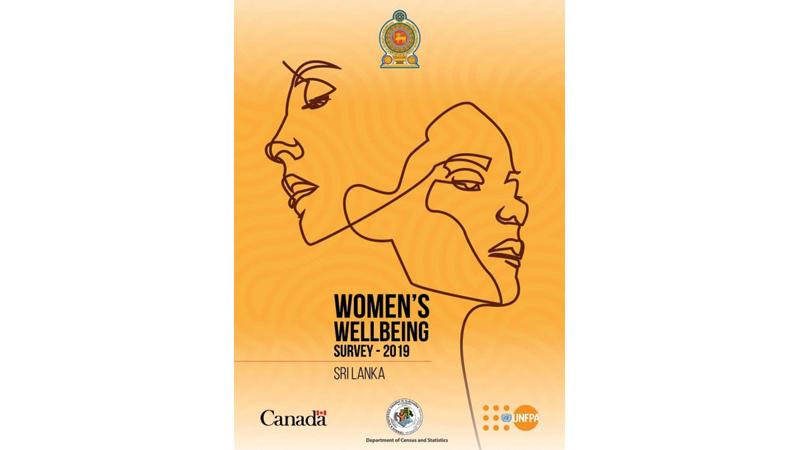
Violence against women and girls is one of the most prevalent forms of human rights violations in the world. In the midst of the Covid-19 pandemic, anecdotal evidence suggests there has been an increase in the reported cases of sexual and gender-based violence due to lockdown and travel restrictions.
Even before the pandemic, the Women’s Wellbeing Survey shows that 1 in 5 (20.4%) women in Sri Lanka have experienced sexual and/or physical violence by an intimate partner in their lifetime; and one in four women (24.9%) in Sri Lanka have experienced sexual and/or physical violence since the age of 15 by an intimate partner or non-partner (2019).
This Women’s Wellbeing Survey (WWS), the first ever in Sri Lanka, was carried out by the Department of Census and Statistics (DCS) with technical support from the United Nations Population Fund (UNFPA), and funding from the Government of Canada. The survey estimates national level prevalence of violence against women and girls with a focus on intimate partner violence - commonly referred to as IPV.
Director General of the Department of Census and Statistics, P.M.P. Anura Kumara said, “In 2019, DCS conducted the first dedicated national prevalence survey on violence against women/girls using the WHO methodology. The survey aimed to identify the forms, prevalence, impacts and associated factors of violence against women/girls aged 15 and above in Sri Lanka. The data collected through this survey was used to compile two Sustainable Development Goal (SDG) indicators and will be used for national programs and policy planning of wellbeing of women and girls”.
Despite the prevalence of sexual gender-based violence (SGBV), there is a serious dearth of reliable data. This survey has attempted to bridge this gap by collecting first-hand information from women and girls across the country through a standardised methodology that would also allow Sri Lanka to compare data between other countries in the region. This data also supports indicators under the SDG 5, mainly 5.2.1 and 5.2.2 which will help Sri Lanka track its progress ahead of the 2030 Agenda.
The lack of comprehensive data on violence against women and girls impedes the implementation of evidence-based policies, advocacy and programming.
National Program and Policy Analyst, Women’s Rights and Gender, and Officer in Charge of UNFPA Sri Lanka, Ms Sharika Cooray said, “Data on violence against women and girls is crucial to understand the magnitude of the issue, though we know that the data collected is just the tip of the iceberg. This data will ensure an institutionalised and coordinated response from all relevant stakeholders in Sri Lanka”.
Globally one in three women experience either physical and/or sexual violence in their lifetime. Nevertheless, this is not given much recognition by relevant policy makers. Violence against women and girls have serious socio-economic implications and this survey sheds more light on many aspects of this grave human right violation.
As such, the WWS has exposed many forms of violence and its impact on women.
The survey found that controlling behaviour (19.1%) from a partner is the most prevalent form of violence while the second most prevalent form of violence was found to be physical violence (18.9%) which women have experienced during their lifetime, with the estate sector recording the highest number which was 1 in 3 women (37.9%).
The relevance and importance of such data cannot be understated. Policy makers and development agencies need such data to make informed decisions on where and how to target funding and other support and to lobby for more Government resources to be allocated towards this issue. For example, the evidence on IPV can make the case to enhance multi-sectoral services - such as shelters, healthcare services, legal support and other services required by survivors. Further, this data will inform the next phase of the National Framework and Action Plan to address SGBV and efficient use of resources as a result.
Proper use of data can also empower women and girls to recognise their rights and also encourage them to seek support. By effectively presenting the issue as a national, subregional and global issue, women and girls will understand that they are not alone and more importantly, the use of data for advocacy or awareness-raising is imperative and may encourage other survivors to report their cases and access critical services. This is why UNFPA is now invested in raising awareness on the findings of the WWS to call for more services, more resources and more support to be done to ensure women and girls are free from violence.
